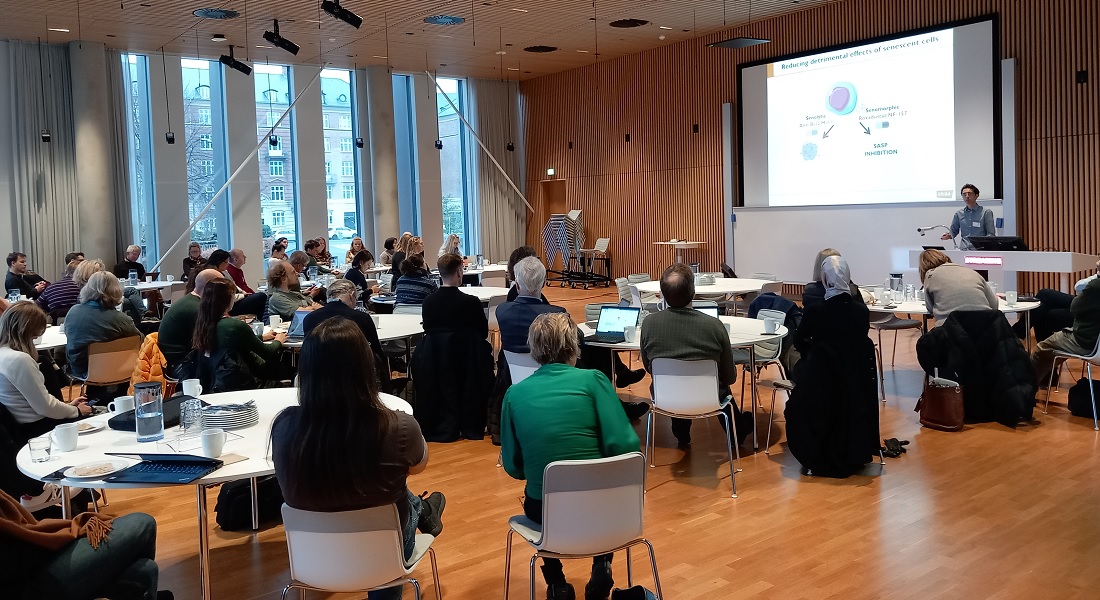Impressions from Marco Demaria
With the first annual meeting in the Network for Researchers in Aging coming to a close last week, we’ve sat down with keynote speaker Marco Demaria from the University of Groningen and the European Institute for the Biology of Aging (ERIBA) to hear more about his presentation, his impressions of the day, and his advice for the future of the network. Watch his keynote presentation below.

Senescence – the process of how and why cells age – is currently a field with a lot of traction in aging research. Recent studies in model animals have found that there is typically a significant accumulation of senescent cells in the animal prior to a variety of diseases such as diabetes. Therefore, there is a growing interest in mapping the correlation between senescent cells and disease, and in tracking, treating, or removing senescent cells as a potential means of preventing disease.
This research area is what Marco Demaria kicked off the day with, with the presentation entitled “Heterogeneity in Cellular Senescence: From Mechanisms to Interventions.” Presenting to an audience with everything from basic scientists to psychologists to clinicians brought up interesting takes on the topic, he says.
“The questions reflect quite well that it was an audience that was very multidisciplinary and diverse in terms of their expertise, which is great. That makes it interesting. Questions from a variety of fields can make you see things that you have overlooked, because you are too immersed in what you do yourself,” says Marco Demaria.
From sick care to health care
One of the primary takeaways from Marco Demaria’s keynote presentation was the need for a transition into the idea of health care rather than sick care – preventing disease rather than treating it. And that this transition should come through clinicians and basic scientists working together, exchanging results and experiences from clinical trials.
“Closer collaboration between clinicians, who understand much more about the treated patients, and basic scientists is very important to transition into proactive health care. If we understand the changes in the body before the disease happens, then we can modulate on those changes and delay or prevent the disease from happening in the first place,” says Marco Demaria.
Having the first annual meeting in the network is a good start, says Marco Demaria. But bringing it further requires work, dedication and to actively bring together the theme groups in order to start collaborative projects, for it all to really pay off.
“It is challenging, but it will be worth it if you manage to do it. That is what my experience is from a network like this in the Netherlands. Having this type of network is very helpful, but it is important that there is a unifying view and unifying ideas, and that the working groups come together to see how they can collaborate within these views and ideas,” says Marco Demaria.
